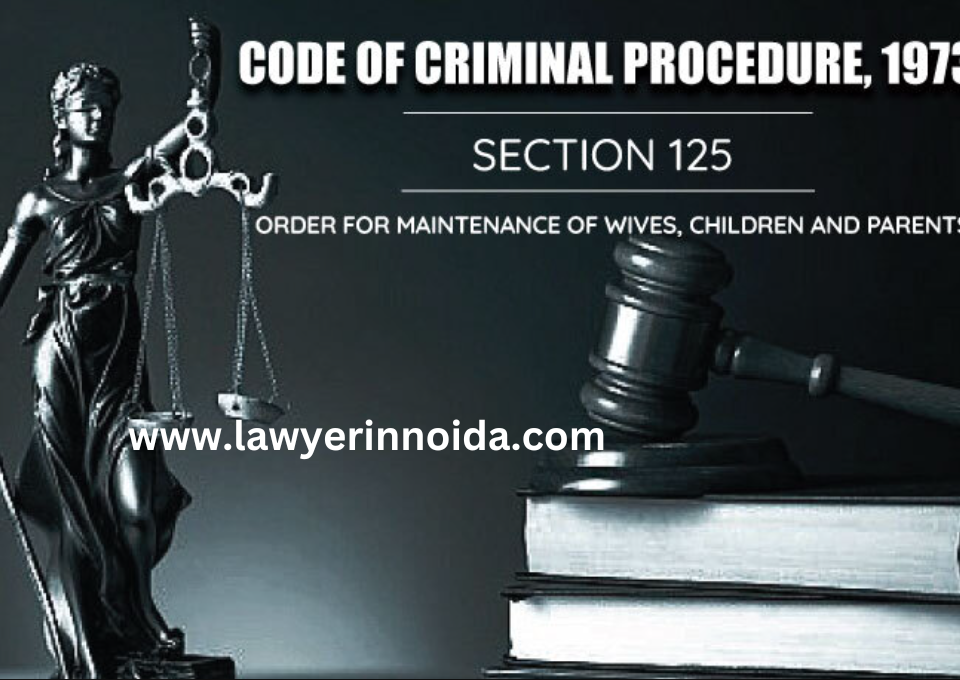
Child Visitation Rights
Child Visitation Case in Noida
Visitation rights refer to the legal entitlement of a non-custodial parent or other family members, such as grandparents, to spend time with a child after custody arrangements have been determined by the court. In most cases, when one parent is granted sole custody, the other parent retains visitation rights, which allow them to maintain a meaningful and consistent relationship with the child. These rights are vital for ensuring that children have regular contact with both parents, even if they do not live together, promoting emotional well-being and fostering a sense of continuity in their lives. Visitation rights are a critical aspect of family law and are designed to maintain strong, healthy connections with both parents, as the child's development benefits from the involvement of both parties. The court establishes these rights to ensure that children are not deprived of the love, support, and guidance that each parent can provide. In some cases, extended family members, such as grandparents or siblings, may also seek visitation rights if they have played an essential role in the child's life. The court will always prioritize the best interests of the child when making decisions about visitation.
Types of Visitation Rights
Reasonable Visitation: This type of visitation allows both parents to agree upon a schedule based on the child's needs and the parents' availability. In this arrangement, there are no specific time constraints, and the parents are free to make decisions based on the child’s schedule. However, the court can intervene if disagreements arise or if either parent is uncooperative. Reasonable visitation promotes flexibility and cooperation, allowing parents to adjust visitation times according to the child’s activities, such as school events or extracurriculars. It encourages communication and shared decision-making between parents, which can lead to a more harmonious co-parenting relationship. If issues arise, parents may seek court assistance to resolve disputes or modify the arrangement. The goal of reasonable visitation is to ensure that the child’s emotional and physical well-being is prioritized while accommodating the practicalities of each parent’s life.
Fixed Visitation: In cases where the parents cannot agree on visitation, the court may establish a fixed schedule. This schedule specifies when the non-custodial parent can spend time with the child, such as weekends, holidays, or specific weekdays. A fixed visitation schedule offers more predictability for both parents and the child, providing structure and stability. It also reduces conflicts between parents by clarifying when each parent will have time with the child. Such schedules help ensure that the child maintains regular and consistent contact with both parents, which is important for emotional security. The court may also consider any practical issues, such as distance or work schedules, to ensure the visitation arrangement works smoothly for everyone involved. Fixed visitation is designed to offer a fair and predictable approach, supporting the child's relationship with both parents.
Supervised Visitation: In some cases, where there are concerns about the child’s safety or the ability of a parent to provide proper care, the court may order supervised visitation. This means that a neutral third party, such as a social worker or relative, must be present during visits to ensure the child’s well-being. Supervised visitation may be temporary and could change over time as the situation improves.
The primary goal of supervised visitation is to protect the child from any potential harm while still allowing them to maintain a relationship with both parents. The court may impose specific conditions, such as limiting the frequency or duration of visits, to ensure the child’s safety. As the parent demonstrates the ability to provide a safe and supportive environment, the court may gradually increase the level of visitation or move to unsupervised arrangements. Supervised visitation may also be used when there are allegations of abuse, neglect, or substance abuse, ensuring the child’s welfare remains a priority.
Virtual Visitation: With the rise of technology, courts have increasingly allowed virtual visitation rights, where parents can maintain regular contact with their child via video calls, online chats, or other digital means. Virtual visitation is often used when physical visits are not possible due to distance or other constraints. It enables parents to stay involved in their child's life, even if they are geographically separated or unable to meet in person regularly. This type of visitation can be particularly beneficial in long-distance parenting arrangements, allowing both parents and the child to remain emotionally connected. It can also be used to supplement in-person visitation, providing additional opportunities for communication. Virtual visitation can help alleviate feelings of isolation for the non-custodial parent and provide the child with a sense of consistency. Courts may set guidelines for virtual visits to ensure they are conducted in a healthy and meaningful way, maintaining the best interests of the child.
Factors Influencing Visitation Rights
When determining visitation rights, the court takes various factors into account:
Best Interests of the Child: Just like with custody decisions, the child's welfare is the primary concern. Courts aim to ensure that the child maintains a relationship with both parents, unless there are specific reasons to limit visitation, such as allegations of abuse or neglect. The child's emotional, psychological, and physical well-being is considered when making visitation decisions, ensuring that the arrangement fosters a positive and supportive environment. The court may take into account factors like the child’s age, preferences (if they are old enough to express them), and the ability of each parent to provide a stable home. In some cases, the child’s bond with extended family members, such as grandparents, may also be considered. The goal is always to create an arrangement that best supports the child’s development, security, and happiness. Any decision made will focus on what is healthiest for the child in the long term.
Parent-Child Relationship: The existing relationship between the child and the non-custodial parent is a key factor. If the child has a strong, positive relationship with the non-custodial parent, the court is more likely to grant visitation. If there is an emotional or behavioral concern, supervised visitation may be considered. The court will assess how the child interacts with the parent, taking into account any signs of attachment, trust, and comfort in their presence. In cases where the relationship is strained, the court may recommend counseling or therapy to help improve communication and bond between the parent and child. If the non-custodial parent has been absent or disengaged, the court may grant visitation to help rebuild the connection. The child's best interest will always be at the forefront, ensuring that the visitation arrangement supports their emotional and developmental needs. Ultimately, the court seeks to foster a healthy, nurturing relationship between the child and both parents.
Parental Cooperation: A parent’s willingness to work with the other parent to ensure that visitation rights are upheld is another important consideration. Courts generally prefer to give parents the opportunity to co-parent and resolve any issues amicably, but if there is ongoing conflict or refusal to honor visitation rights, the court may intervene and make adjustments to the schedule. A cooperative co-parenting relationship fosters a positive environment for the child, ensuring they can maintain healthy bonds with both parents without the stress of parental conflict. When parents are unable to agree on visitation, the court may encourage mediation or other conflict-resolution methods. A parent who repeatedly violates or disrupts visitation schedules may be seen as acting in bad faith, leading to stricter visitation arrangements or even the possibility of losing visitation rights. The court always seeks to create an arrangement that minimizes conflict and prioritizes the child's stability and emotional well-being.
Child's Age and Preferences: The child’s age and ability to express their preferences may also influence visitation decisions. Older children may have a say in the visitation arrangement, especially if they are mature enough to understand the situation. However, their preferences are only one factor among many, and the court will ultimately decide based on what is in the child’s best interest. For younger children, their preferences may not be as influential, but the court will still consider their emotional needs and developmental stage. In some cases, the court may interview the child to better understand their wishes, but it will weigh these against other factors such as the child's safety, stability, and relationship with both parents. While the child's voice is important, the court's priority remains ensuring the child’s overall well-being and minimizing any potential harm. The court may also consider the potential impact of the visitation arrangement on the child’s academic performance, social life, and mental health.
Enforcing Visitation Rights
- Visitation rights are legally enforceable: meaning that if the custodial parent refuses to comply with the court-ordered visitation schedule, the non-custodial parent can seek legal remedies. Some potential steps for enforcing visitation rights include: filing a motion for contempt of court, requesting the court to modify the visitation schedule, or seeking the assistance of a mediator or legal professional to resolve disputes. If the custodial parent continues to obstruct visitation, the court may impose penalties, such as fines, or even modify custody arrangements to grant the non-custodial parent more time with the child. In extreme cases, the court may also order supervised visitation or other interventions to ensure the child’s well-being and uphold the visitation agreement. It is important for the non-custodial parent to document instances where visitation is denied and present evidence to the court to support their case. Ultimately, the court's goal is to ensure that visitation rights are upheld in a way that benefits the child and supports their ongoing relationship with both parents.
- Filing a Motion for Contempt: If one parent consistently denies the other parent visitation, the non-custodial parent can file a motion for contempt in family court. This motion requests the court to enforce the visitation order. If the parent is found in contempt, the court may impose penalties such as fines, changes to custody, or other sanctions. The court may also order make-up visitation time to compensate the non-custodial parent for missed visits. In some cases, the court may require the custodial parent to pay for the non-custodial parent’s legal fees or counseling services to address any ongoing issues. The goal is to hold the non-compliant parent accountable and ensure that the child’s best interests are prioritized.
- Modification of Visitation: If visitation rights are not being respected, the court can modify the visitation order to make the schedule clearer or more accommodating. This modification might also involve supervised visitation or changes to the frequency of visits. The court may adjust the schedule based on the child’s changing needs, the parents' circumstances, or if the original order is no longer working in the child’s best interest. In some cases, the court may also impose stricter conditions, such as requiring mediation or parenting classes, to address underlying issues between the parents. The goal of modifying the visitation order is to ensure a stable and healthy environment for the child while balancing the needs and rights of both parents.
- Mediation: Before taking the matter to court, parents can seek mediation, where a neutral third party helps them resolve the dispute amicably. Mediation can be an effective way to address concerns and find solutions that are in the best interest of the child. A trained mediator can help both parents communicate more effectively, facilitating a constructive dialogue about visitation and custody arrangements. Mediation is often less time-consuming and expensive than going to court, and it allows parents to have more control over the outcome. In many cases, if parents reach an agreement through mediation, the court will incorporate it into the final order, making it legally binding. Mediation can also help reduce conflict and improve co-parenting by establishing a more collaborative approach to parenting after separation.

Impact of Visitation on the Child
Visitation rights play a significant role in the child’s emotional well-being and development. It is essential for the child to maintain relationships with both parents, especially if both parents were involved in the child’s life before the separation. Regular contact with both parents helps children feel more secure and loved, and it reduces the negative effects of the parents' separation. However, in some cases, visitation may be limited or supervised due to concerns such as abuse, neglect, or substance abuse issues. If there are fears about the child's safety or well-being during visits, the court may implement measures to ensure the child is protected. These restrictions aim to safeguard the child's physical and emotional health while still allowing a relationship with both parents if possible.
Domestic Violence or Abuse: If there are allegations of abuse or violence, the court may limit visitation or make it conditional on supervision. Protecting the child’s safety and mental health is the priority in such cases. The court may also order an evaluation of the abusive parent’s behavior and require anger management or counseling before visitation is allowed. In extreme cases, the court may suspend visitation altogether until the concerns are addressed. The child's well-being and emotional stability will always be the court's primary consideration when making such decisions.
Substance Abuse: Parents struggling with substance abuse may face restrictions on visitation until they can demonstrate they have addressed their addiction issues. The court may require the parent to complete a rehabilitation program, submit to regular drug testing, or attend counseling sessions before visitation is allowed. In some cases, visitation may be supervised to ensure the child's safety during visits. The court's primary concern is ensuring that the child is not exposed to any harmful situations, and that the visiting parent is capable of providing a safe, stable environment. Once the parent has made significant progress in their recovery and can prove they are no longer a risk to the child, the court may gradually increase visitation rights.
Parental Alienation: If one parent is trying to turn the child against the other parent, the court may take steps to ensure that the alienation stops, and visitation is upheld to maintain the child’s relationship with both parents. Parental alienation can have serious long-term emotional effects on the child and disrupt the bond between the child and the targeted parent. In such cases, the court may order counseling or therapy for the child or the family to address the issues. The court may also implement monitored visitation or even change custody arrangements if necessary to protect the child's well-being. If the alienating parent is found to be deliberately interfering with the child’s relationship with the other parent, they may face legal consequences such as fines or a modification of the custody order.
Conclusion
Visitation rights are a critical part of child custody cases and help ensure that both parents remain an active part of their child’s life, even if they do not live together. While the best interests of the child guide the determination of visitation rights, the court works to strike a balance that maintains a healthy relationship with both parents while ensuring the child’s safety and stability. If you are facing issues regarding visitation rights, it is crucial to consult with an experienced family law attorney to help protect your rights and the well-being of your child. At Lawyer in noida, we provide expert legal assistance in family law matters, including visitation rights and custody disputes. Let us guide you through the legal process and help you secure a visitation arrangement that benefits your child’s future.




